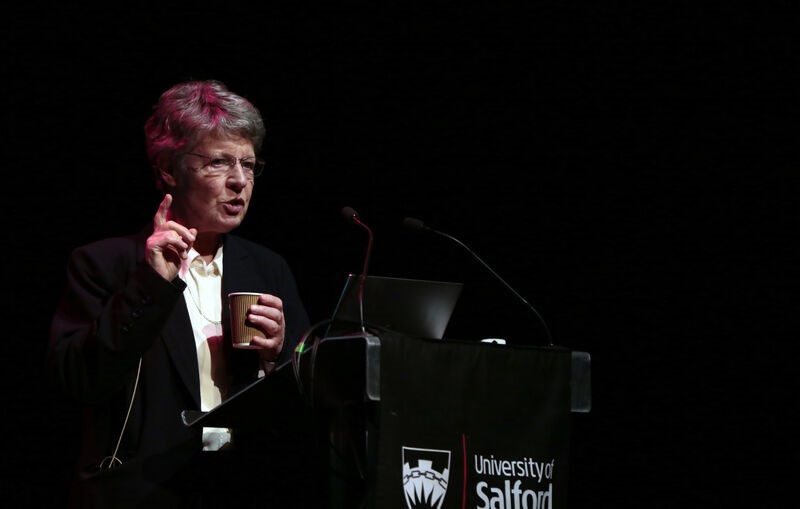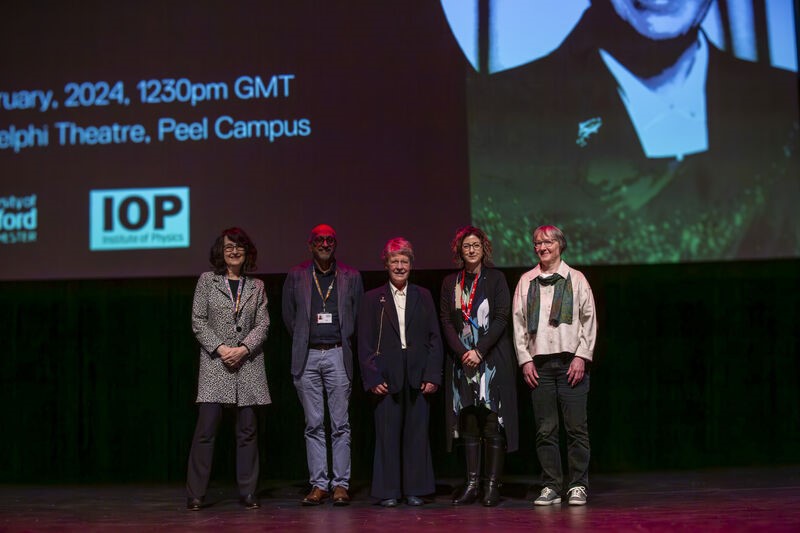
Inclusion and gender bias were the focal point of an event at University of Salford this week to mark the International Day of Women and Girls in Science.
The conference was held at the New Adelphi theatre on the University grounds on the 6th of February 2024.
The keynote speaker, Dame Susan Jocelyn Bell Burnell is an astrophysicist from Northern Ireland who, as a postgraduate student, discovered the first radio pulsars in 1967. Her work was recognised by the award of a Nobel Prize to her male thesis supervisor.
Her lecture dissected the conversation around female role models (or the lack of many), discrimination and the many socio-cultural norms influencing the participation of female gender in the sciences.
She said: “We now collect data and on how many women are in each level particularly in academia and it shows that women are in a minority it also shows that women progress more slowly than the men. And in my area it shows that women are particularly putting in less grant applications, in other words not putting themselves out there as their male colleagues.”
She also explored the marketing and advertising of toys to children highlighting how male toys are often designed to inspire creativity as opposed to female toys which are often centred on beauty and flair. She referred to the “let toys be toys” campaign which has tried to bridge that gap.
On the state of female participation in Africa, she said: “Africa is a big place but there is a very interesting set of higher mathematics schools located in parts of Cape town and Ghana called the African institute of mathematical studies and these aim to provide advanced mathematic opportunities for talented local people. That kind of thing makes such a difference in those sorts of countries, and I think it’s a prototype that many other subjects could imitate.”

Several attendees spoke glowingly about the event and its importance in driving these conversations.
Dr Rabab Al-Zaidi, a lecturer in computer networks in the School of Science Engineering and Environment said: “I really liked how she inspired our impressions of how interest in science should start from an early age. This kind of engagement will hopefully drive interest in the sciences for girls. I have been teaching computer networks for two years and there is no girl at all in the programme. Hopefully this will encourage girls and women to be more involved in science.”
The event was hosted by the University of Salford, organised by Dr Marina Leontiadou, reader in Physics at Salford.
She said: “This is something I have been engaged in for years now. It was especially difficult during Covid as everything had to be done online. It is not easy to also bring people back to have the program in person as many would want to watch online without having the in-person engagement.
She also spoke on the increase in male participation in the event as something that is welcome and appreciated.
“Before now we only saw females attending but now there is an acceptance that it is not only for females,” she added.
The event was attended by a number of students and teaching staff of the university and provided a fitting way to celebrate the International Day of Women and girls in science.
